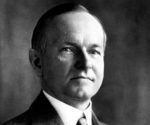Investor and author Doug Casey recently wrote that most economists “are political apologists masquerading as economists.” He says they are like witch doctors pretending to be neurosurgeons. They “prescribe the way they would like the world to work and tailor theories to help politicians demonstrate the virtue and necessity of their quest for more power.” The discipline of economics, says Casey, “has been turned into the handmaiden of government in order to give scientific justification for things the government wants to do.”
“Intellectuals” have always been a key ingredient in the glue that holds government tyranny together, supplying endless rationales and excuses for less freedom and more government, Murray Rothbard wrote in Anatomy of the State. Among the most prominent government apologists, said F.A. Hayek in The Road to Serfdom, are economists, historians, and legal scholars.
This of course is nothing new. In his famous 1949 treatise, Human Action, Ludwig von Mises explained that statist bias already pervaded academe, and not just the discipline of economics. “Tax-supported universities are under the sway of the party in power,” wrote Mises. “The authorities try to appoint only professors who are ready to advance the ideas of which they themselves approve.” The “first duty of the university,” therefore, is “to sell the official [government] social philosophy to the rising generation.” Universities thus have no use for economists like Austrian School economists. They do have a use for Casey’s “economic witch doctors,” who are rewarded handsomely for their masquerades of bamboozlement—given government jobs (at the Fed, for example), government grants, appointments to prestigious university positions, media appearances, book deals, etc.
By 1949 most universities had already become “nurseries for socialism,” wrote Mises, where “the majority of the students espouse . . . the interventionist panaceas recommended by their professors.” At the same time there have always been young people “who are keen enough to see through the fallacies of interventionism.” In other words, there has always been a remnant that, despite being a minority, has used the power of ideas—especially the ideas of free-market, Austrian School economics—to fend off the forces of government tyranny and socialist economic devastation and corruption. It is because of his ideas that Mises was hunted by Nazis and reviled by the communists and all other varieties of socialists of his day. They understood that such ideas were their deadly enemies, especially in the hands of someone as brilliant as Mises.
It is not a stretch to argue that what tyrants and would-be central planners fear the most are not insurrectionists and revolutionaries but sound economic ideas. Economic common sense is a weapon—arguably the most powerful weapon—in the defense of a free and prosperous society. Another weapon in the arsenal of ideas is Human Action, whose every page is packed with brilliant insights and truths about peaceful, voluntary exchange in a private property, free-market society and about the fallacies and superstitions of interventionism and socialism.
The Mises Institute will be celebrating the seventy-fifth anniversary of the publication of Human Action with a special conference at the Mises Institute in Auburn, Alabama, on May 16–18, 2024. A powerhouse roster of the Mises Institute’s top scholars will speak about the importance and lasting impact of Human Action on their thinking, their lives, their careers, and the world. Most importantly, speakers will address how to continue spreading the ideas found in Human Action. The “body of economic knowledge,” Mises wrote, is essential to human civilization itself, and if we ignore it, we “will stamp out society and the human race.” Mises sincerely believed that such knowledge is an essential roadblock to the nihilistic, socialistic destructionism that we see all around us today.
The papers presented at the conference will be published as a commemorative volume that will serve to inspire scholars for decades to come, further guaranteeing that the intellectual legacy of Human Action will live on. Of course, we can’t do anything without you. Please be our partner with your most generous donation. Donors who give $1,000 or more will be listed on the Patrons page.
In addition, those who give $1,000 or more will receive an elegant limited-edition leather-bound volume of Human Action with a new foreword by Dr. Joseph Salerno, the academic vice president of the Mises Institute.
Donors of $5,000 or more will also be listed as Sponsors of this historic event. Hosting this event and publishing these two books will be expensive, so we are reaching out to Supporters like you. Please help sponsor this historic event. With your support we can make great progress in ensuring that Mises’s ideas—the ideas that hold civilization together—continue to be actively discussed, taught, developed, and acted upon. These books are very important weapons in the never-ending war of ideas. Join us in championing the scholarship of freedom.
Human Action was arguably the most important book of the twentieth century. Help us spread Mises’s ideas to more and more people in the twenty-first century. I hope to see you in Auburn in the spring for this historic and inspiring event!
Best wishes,
Thomas J. DiLorenzo President
PS: Help us celebrate Human Action’s seventy-fifth anniversary by giving today. Donors and Sponsors will be listed on the Patrons page and recognized at the event.
Full story here Are you the author? Previous post See more for Next postTags: Featured,newsletter






















